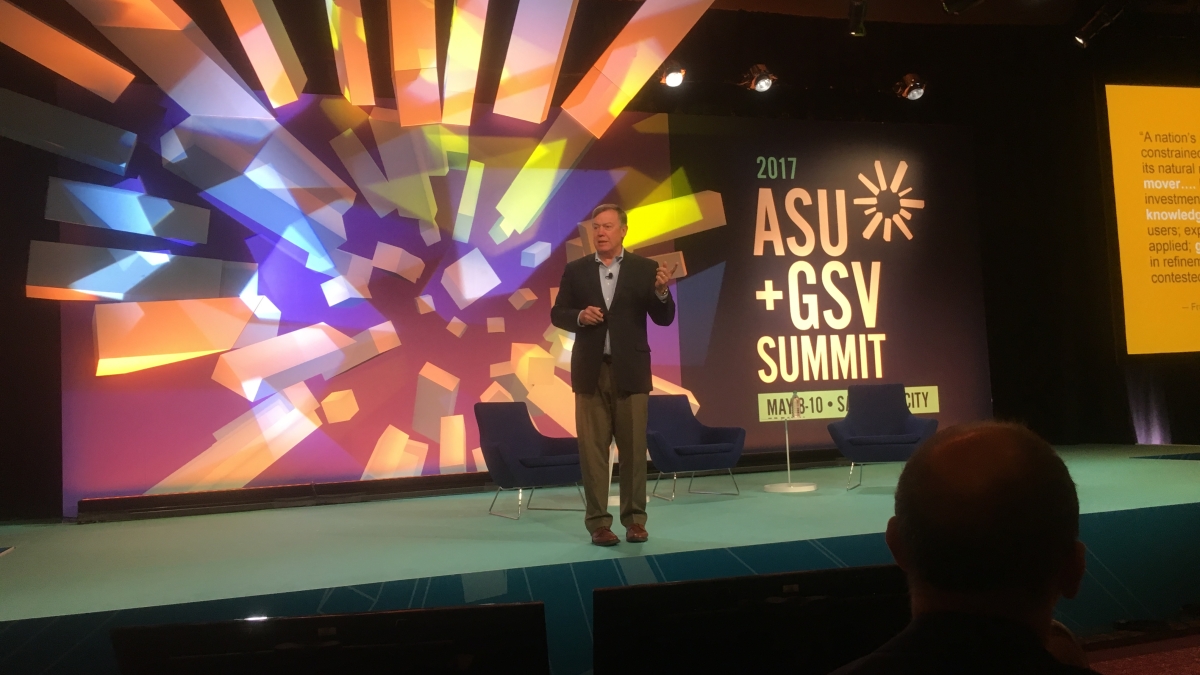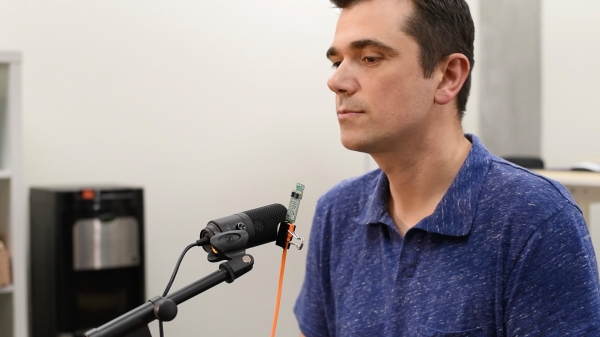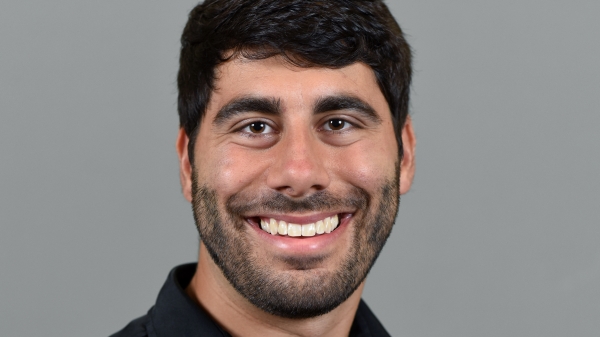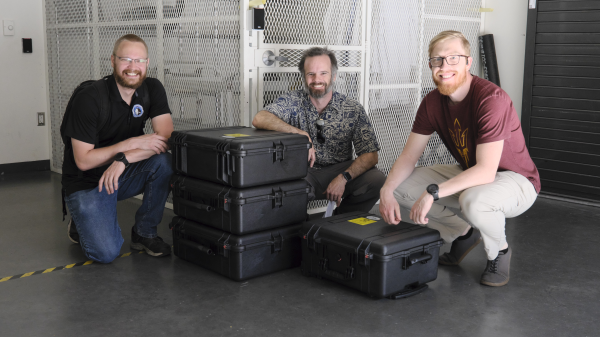Innovation summit speakers say anyone can learn anything
ASU, Global Silicon Valley co-sponsor conference dedicated to boosting innovation, technology

There’s no reason that any human being cannot learn anything, Arizona State University President Michael Crow told a group of educators and investors at an annual conference for the learning and talent innovation community.
After his keynote, Crow introduced two Harold W. McGraw Jr. Prize in Education winners, including Sandy Shugart, president of Valencia College. Shughart picked up on Crow’s idea, noting, "Anyone can learn anything under the right conditions."
He told a story of a German teacher saying some people cannot learn German. “To which the reply is: ‘How fortunate they weren’t born in Germany,’” Shughart said.
Crow and Shughart spoke at the annual ASU/Global Silicon Valley Summit in Salt Lake City. The university and the investment network co-sponsor the conference, which is dedicated to elevating innovation.
The summit brings together investors, educators and innovators. It’s been called the world’s smartest summit: Bill Gates, Common and Condoleeza Rice have all spoken there. In addition to President Crow, this year’s speakers included tennis star Andre Agassi, Secretary of Education Betsy DeVos and sports broadcaster Ted Robinson.
“I want to actually put something on the table,” Crow said in his address. “What are the actual innovations we need? Not just those that are coming from inventiveness.”
Until 1900, human knowledge doubled every 100 years. Now, basic human knowledge doubles every 13 months.
“What does that mean?” Crow said. “Knowledge is not static.”
He called for perpetual innovation in education, including scaling up to reach millions more students.
“We need technologies that derive value from scale,” he said. “No one’s ready for this. No one is producing this yet.”
He spoke about national service universities, like ASU.
“Knowledge at the university is complex, adaptive and scalable to social speed,” he said. “The predictors of the doom of higher education were wrong. That colleges will cease to exist — wrong.”
We’re infants in terms of what we know and unbelievable in terms of what we can know, Crow said.
“We’ve made subjects that shouldn’t be difficult difficult, like math,” he said. “Every kid that shouldn’t study this or can’t understand that, that’s a social construct. … Those are all our own self-made failures.”
Needed innovations include ways to connect human beings in technologically based learning environments, math and science mastery for all, and development-based assessment.
“I want to make one point: at the heart of everything we do in education … must be this notion of knowledge and knowledge creation,” Crow said. “If we stop and consider everything related to education to be a commodity, everything to be just a process … we will in the long run fail in our process.”
More Science and technology

ASU researchers develop special microphone to verify human speech
Deepfakes have become a large societal concern with the advent of video and audio content generated by artificial intelligence, or AI. A deepfake is a convincing imitation that blurs the lines…

Leading students toward a future of renewable energy
Nicholas Rolston, assistant professor in the School of Electrical, Computer and Energy Engineering, one of the Ira A. Fulton Schools of Engineering at Arizona State University, has found his passion…

SPARCS mission spacecraft bus delivered to ASU for final assembly
The Arizona State University team that is building the NASA-funded Star-Planet Activity Research CubeSat, or SPARCS, cleared a major milestone this week — receiving its spacecraft bus at the School…